Season 6: Episode #154
Podcast with Sowmya Viswanathan, MD, MHCH, MBA, FACP, Chief Physician Executive, BayCare Health System
Share
In this episode, Sowmya Viswanathan, MD, MHCH, MBA, FACP, Chief Physician Executive of BayCare Health System shares her healthcare journey and insights on the evolving role of physician executives in health systems.
Dr. Viswanathan discusses BayCare’s digital initiatives, including EMRs, telehealth, RPM, AI, data platforms, interoperability, and cybersecurity. She also explores the impact of AI in healthcare, particularly in assisting doctors and nurses with patient interactions – ensuring that key details from conversations are captured accurately. She expresses her fascination with AI and Generative AI and their ability to aggregate and utilize data effectively to enhance patient care.
While AI represents the next generation of transformation, Dr. Viswanathan stresses the need for responsible adoption to mitigate risks and build trust. She believes AI-driven tools, like ChatGPT, has the ability to support clinicians and drive better patient outcomes. She also states that as healthcare embraces technology and as AI proves its value in improving care delivery, widespread adoption will come. Take a listen.
Show Notes |
||||
| 01:14 | What interests you in the healthcare industry segment to become the CIO of a hospital system? | |||
| 02:47 | How long have you been in the leadership position at UMC, where is it located, and what kind of population does it serve? | |||
| 03:35 | You have done a lot of work from technology perspective to support the business needs of the hospital. You've done over 200 applications and transformed the EMR system. Would you like to share with the audience the thought process that drove those changes and what were some of those changes? | |||
| 07:47 | What do you think about your digital transformation efforts? If you could describe a few of them which have had impact on the patient population. | |||
| 08:30 | Please describe in your own, you know, way that what is digital transformation for provider systems such as yours? Where do you see it going? Some of the challenges that you might have faced and how did it actually end up impacting patients? | |||
| 11:24 | How did you manage to change the mindset of the people? How did they manage to change themselves? To adapt to this new world where technology, especially with AI and GenAI and other new technologies which are coming our way, how do you change mindsets and change behaviors and change culture over there? | |||
| 13:00 | Would you like to provide one example of how the technologies which you were implementing, and you continue to be implementing in your hospital system are accessible and usable by a variety of users, including within the hospital and outside the hospital. | |||
| 16:28 | How do you innovate? Do you involve external parties? Do you have some kind of a, you know, innovation focus department? Or is it part and parcel of everybody's, you know, kind of like daily life? | |||
| 19:24 | What are your thoughts on new technologies, especially Gen AI? Have you been experimenting with any predictive analytics or large language models? What would be your advice or thoughts to any other healthcare leaders on how to go about this journey of exploration? | |||
| 22:15 | Standing here now and looking back, if you were able to go back and change one or two things, what would you like to do differently or have done differently? | |||
Video Podcast and Extracts
About Our Guest
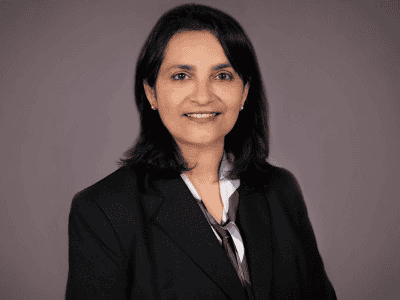
Sowmya Viswanathan, MD MHCM MBA FACP, is the Chief Physician Executive for BayCare Health System. Dr. Viswanathan is an Internal Medicine physician who spent most of her healthcare career in Massachusetts and New Hampshire. Her prior experiences include clinical role as an Internal medicine physician at UMass Memorial Medical Center and Harvard University/ Partners Health Care. She has also held various leadership & management positions as the Quality Officer, Regional Chief, Physician-In-Chief, Chief ACO Officer and Group Chief Medical Officer at large health systems including Dartmouth Hitchcock, UMass and Tenet Health. In her current role, she has enterprise-wide responsibilities over BayCare clinical teams including the hospitals, ambulatory, employed medical group, provider networks, BayCare graduate medical education and research, value-based care delivery, population health services organization, health plan and digital health. At BayCare she will be responsible for ongoing strategy, engaging clinical leaders to ensure delivery of high quality and value-based care as well as optimizing financial and operational performance. Responsibilities will include driving efficiencies across various service lines.
She continued her clinical practice of medicine for over 20 years and has been an Instructor at Harvard School of Public Health.
Dr. Viswanathan completed her Masters in Health Care Management (MHCM) from the Harvard T.H. Chan School of Public Health, Boston, MA and Master of Business Administration (MBA) at the University of Massachusetts, Amherst, MA.
Recent Episodes
Q. Hi Soumya, welcome to the Big Unlock Podcast. It is a pleasure to have you here. Thank you very much, Rohit. Appreciate it that you are able to spare time for this. So Soumya, we would like to start with some quick introductions. So I’m Rohit Mahajan, I’m the CEO and Managing Partner at BigView and Demo Consulting.
We’ve been doing this podcast for a while, so it’s pretty popular with our listeners. So I’m sure they’re looking forward to understanding your thought process and, and what advice you have for them. So could you please start with your introduction as well?
Soumya: Thanks Rohit. Very nice to meet you again. I am Dr. Soumya Viswanathan. And I’m the Chief Physician Executive at BayCare Health System in Tampa, Florida.
That’s amazing. So what motivated you, Soumya, into this direction? That is my, one of my questions. And second is, what are the differences that you find between the two, let’s say, geographies or the roles that you had here previously in Massachusetts and now what you’re doing over there?
Soumya: Absolutely. So I heavy hitter on the clinical side. You know, I love clinical. My patients love me the typical clinician, but I started getting roles and opportunities to take on projects on the management side or so called the leadership side. When I took the projects on, I felt very comfortable. Then I was doing them and I started getting more projects because as you deliver on the outcomes and the results for each of the projects, people say, Oh, she’s done this.
So let’s give her more. So it ended up being that I was, uh, first I raised my hand for projects and then I just started getting them and I had some really good mentors. And the mentors trusted me, which is also important. So I circled back to them and said, you know, I like doing this, but I’m not sure do I want to give up clinical or not.
So that was the time when I decided to do MBA and MHCM just to make sure that I do want to go down this path of leadership. And it turned out that I started liking it a lot. I liked it as much as I liked clinical. So it came to a point where I couldn’t do both equally well if I spent 100 percent of my time on both of them.
So it’s 200 percent of my time. So I had to carve out and figure out which direction I wanted to go in. And finally, once I did my MHCM, I realized I really like leadership and I want to give it my best. Put my best foot forward and give it my best shot and see how well I do. And that’s what led me to taking on leadership role.
And Baycare has been pivotal because the health system is on a tremendous growth mode. We are expanding like crazy. So what also helped us in that journey is a lot of the health systems in Northeast North. I should say all the northern states through COVID they allow their people to work remotely. And as you may have seen in the news, a lot of people gravitated or they move migrated down to southern states for warm weather.
And they could work remotely. So the fastest growing cities ended up being, at that time it was Austin, Texas and Tampa, Florida. So, the population here has grown so much that the system, and BayCare is the largest health system in the West Central Florida. So, and it is rated as one of the best in quality outcomes, patient safety, people provide clinically excellent care.
So, it became imperative that, you know, we are on a growth mode, we need to support the population that has migrated here. And I jokingly say, when people move down and move, migrate to other areas, they don’t bring their doctors with them. So we had to support, you know, we need more doctors here. That’s what helped me make the decision to make this my, my stop where I can contribute to leadership team and administration.
Big differences that I see is at least in Bay Care, I should say that, you know, Bay Care has traditionally come together as a health system with the acquisition of community hospitals. And then we set up a medical group. to move forward in expansion of the medical group. So there hasn’t been a lot of focus on academics, which is heavy in Massachusetts, as you know.
So for me, that was a big difference is okay. We need to support, we need to support our physician pipeline for the next generation with a pipeline for recruitment. So what we have done now is moving forward. I’m doing a huge. focus on building the academic mission for Bay Care Health System. We have not delved into academics, and right now we are on the run for being one of the fastest growing GME programs in the country, almost, with 650 residents who will be graduating by 2029, which means in three years we went from 24 residents to, we’ll be looking at 500 plus residents who are approved by ACGME next year, in the next year.
So it’s a very exciting time for us. I want to say academics is one big piece culturally or from a practice pattern perspective. Massachusetts and Northeast is heavily steeped in value based care and, um, the fee for service mentality is still a little bit present in some of the southern states. So we’re moving towards value and taking on more risk.
So that’s a difference I do see that the risk taking capability of physicians is definitely ramped up significantly over the past few years and at least in the region where I am.
That’s pretty cool. And, and I was noticing, uh, Soumya that, uh, you recently celebrated your 10th anniversary and, uh,
Sowmya: One of our hospitals, one, one of our 16 hospitals. So it’s St. Joseph South celebrated our 10th anniversary. And, uh, that’s one of the newer facilities we had built, which has been really, growth has been tremendous in that region, but Baycare by itself is 25 years old. As a health system.
That’s cool. And also curious, Soumya, that you are the chief physician.
Executive. Executive. What does that mean as in relation to, let’s say, a chief information officer, chief medical information officer, or a CTO? So what kind of roles do you play and where is the overlap or where is the synergy with your other? Colleagues.
Sowmya: Yeah. So from the chief physician executive role has been evolving through many health systems where traditionally the chief medical officers would lead certain aspects of the health system such as quality, patient safety, you know, dealing with physician enterprise only in the form of peer review and clinical care.
The chief physician executive officer pretty much bridges a little bit more than that So what it does is it it requires us to have a little bit more input into operations A little bit more input into looking at financials and cost accounting and gap, you know So it’s kind of a well rounded Cmo role where you pull into tap into all the other aspects that are required for a health system To be very successful, I want to say.
So we form a very close relationship with every other aspect of our health system. Whether it’s the technology officer, informatics officer, CMIO, or the chief financial officer, the COO, we form a very close dyadic partnership with almost everybody in the organization. The CMIO and the CIO, so we do have an informatics officer and we do have chief medical informatics officer.
Work very closely with them because now that there is so much of enhancement and technology input into almost everything we do, especially for doctors to raising the electronic health record and everything, you know, we cannot do without that kind of partnership.
That’s awesome. That was my segway. I was going to ask you that you mentioned new care delivery models and also, you know, about patient engagement and technology now.
So how does it all come together for you? Some of your what are some of your digital, you know, initiatives? that you are, you are, you know, thinking about or you’re happy about that you have implemented? What are some of the things in the future that you’re looking for?
Sowmya: We have quite a few things, you know, electronic health record optimization obviously is one of the key areas we want to continue to focus on.
We have Cerner as our EMR, so we definitely want to make sure there is always room for improvement and how the clinicians are taking on the EMR. positives and the pros and cons within an electronic health record. So optimizing that flow. The second piece that we are working actively on is tele visits and tele health in general.
Tele health and remote patient monitoring is a big focus for us just because I already mentioned the population has grown and the access to care has been amplified several folds. So we need more visits. to be delivered to this community. The third one is AI innovation in all forms. So artificial intelligence, which is the buzzword these days and data driven, you know, a lot of data driven platforms that we strive to make sure that when we make changes that impact any workflow, that it’s backed up and validated by data.
So data driven platforms are very near and dear to us. The other most important one, I think, is the patient engagement. Bayfield is very focused on providing the right care at the right time in the right place. So we follow that mission to the T, where we want to make sure that patients Providers. So physicians allied health professionals as well as nurses are all taken care off in a similar manner.
So patients should have ease of access to care. So all that becomes very critical for us. And so patient engagement tools is another big portion that we’re looking at. And of course, you know, interoperability and cyber security come hand in hand with everything that we just discussed.
Yeah, yeah. So, Swami, you touched on a lot of things. Could you help us understand more in detail or with any examples that you might have of any digital health initiatives that you found, you know, success in the past with, you know, or that you’re moving in the direction of?
Sowmya: So, in terms of just the tools of engagement, we have engaged. So, we do a lot of We have done a lot of pilots.
We have done a lot of phased approaches to engaging in digital health platforms. So let me just share a few of them without mentioning specific names. So for example, we have engaged in a telehealth platform that improves the care coordination of patients. So we are working with a platform right now that actually engages patients.
And then they also have the care management or the care coordination support on the back end. So with the tools first, we risk stratify the patients on who is high risk for certain diseases and disease conditions. And then we have the care coordination team actually work with us on identifying the disease conditions.
So there is a patient engagement. There is a chronic disease management component to it. And then there is the engaging the patient through the care coordination team that we have. And then looking at, you know, how the outcomes measure out. So that is one we are actively working on. Then we also have like rehab potential, right?
So when a patient has acute hospitalization and they are discharged to home, for example, let’s say they have a heart attack, post heart attack. Oftentimes, the past would be that cardiac rehab has to, the patient has to come in. To the hospital to have the rehab done. Now we are looking at platforms that actually will engage with the patient at home so they are able to do rehab at home without having to drive around and having to take that long distance trial time for commute to come in and have the rehab option available to them.
The other piece that we are working on is early detection. So, early detection is critical. The speed to detecting certain conditions can actually change the outcome of that patient’s condition. So, how quickly do we identify a stroke in a patient? And is it a stroke mimic or is it a real stroke? We are working with a company that allows us for Accurate and early stroke detection.
That’s one of them We also have a couple of others where we have an eicu platform Where it’s an electronic icu because we need to monitor the icu in patients, but we cannot have that many intensivists rounding 24 seven. So we have an electronic methodology to identify that. We’re looking at platforms that look at sepsis bundles, you know, so there is a whole host of conditions that they’re looking at, which are digitally oriented, that allows us to look at them.
You said what has gone well and what hasn’t, I will share with you that some of the exciting ones are. The radiology ones, the radiology digital analytics, because the radiology ones help to identify the accuracy is outstanding. It’s like they have done studies on how many AI driven platforms can actually identify incidental findings versus a radiologist reading it or, you know, how many radiologists do you need to read X number of films? And so we are looking at platforms that look at incidental findings in the lungs, as well as lesions on the heart through echocardiogram. So there’s a whole host of digital platforms that allow us to do this. One thing that we have to watch out for is the fatigue that can set alarm fatigue. So sometimes you have these platforms and it’s pinging away nonstop because it depends on how you set the platform. If you say that you need to alarm me when this happens and you have the metrics not correct, it will be blowing out of control and the alarm fatigue sets in amongst the end user.
So I want to say that we have had our mixed bag where we tested a few and we had to give up on a few and some of them we are many of them we are moving forward with.
That’s great to know Soumya. So is there a way that you think about innovation in certain areas and how about working with startups? Any thoughts or suggestions around those?
Sowmya: We are very open to the areas of focus are definitely driven by, like I said, the three pronged approach. You know, is this going to help our patients? Is this going to help our physicians in any way? Is this going to help our nursing team in any way? We are working with technology tool that’s actually looking at You probably have heard of this, the doctor’s dictations.
Yeah, it used to be transcription in the past. And now we are looking at a dictation modality that allows them to just have a conversation with a patient and not have to worry about the dictation. And there is AI methodology that works on it. We have looked at a similar, we are working with another company that’s doing a similar modality for nurse driven, nurse voice is being recognized, that a nurse can walk into a patient’s room and have a conversation and not have to worry about, have I captured everything that the patient told me? So, you know, every aspect of clinical care is being looked at very closely to see, does it make sense for us to invest in this or not?
In terms of, you know, so we definitely look at the feasibility of. The patient, the physicians, the nursing, and if it helps improve the way we deliver care, we look at it more closely. The second thing that we do look at, you know, obviously there is going to be all kinds of macroeconomics that jumps into all this with, you know, funding and what is the cost and all that, but we, we weigh it very carefully.
As far as startups go, the one thing that Baycare is very open to is if there are programs that are going to deliver on improving care and help our trio team, as I mentioned, and they are willing to co develop a product with us. We are willing to look at it. So Baycare is not just going to say, well, I’m going to open up my purse strings and just, you know, invest in all this technology because there is so much out there.
So we want to make it appropriate, available for our team. But at the same time, if people are willing to co develop, we are willing to look into it. That’s fantastic approach.
Yeah, so as we’re getting close to the end of the podcast and this session here, Soumya, I would like to touch upon the subject of chat GPT, Gen AI, and all the new things which are coming our way in terms of agentic AI.
So any thoughts there or anything that you are, you know, kind of. Heading in the direction of.
Sowmya: I think it’s very fascinating. I’m waiting to see what the next generation of even chat GPT and Jenny do because it’s mind blowing how data can be aggregated. Data can be utilized and how it can effectively help us.
But we also have to be cognizant that, you know, there is always, there could be a downside that we have to watch out for. And unless. It is fine tuned to the point where we feel comfortable, you know, all of us in the digital world feel comfortable that there is no harm, no threat that’s coming out of this.
I think we should forge ahead and move forward because that is the next generation that’s going to come our way, whether we like it or not. And, uh, it’s going to be in every industry, you know, healthcare has traditionally been. I want to say probably at the bottom of the totem pole trying to adapt and adopt technology because we always felt as a doctor, we always felt, well, technology can never overtake doctors and take care of patients, but.
When we started understanding how technology can help us drive better patient care, the adoption became easier. So we have to get to that stage where the chat GPTs of the world have to help us drive better patient care and better outcomes for our patients. Then I think the comfort level will set in.
Rohit: Absolutely. So on that beautiful note, Soumya, thank you so much for this interaction. Really enjoyed it. And, uh, if you would like to add anything, I really appreciate this opportunity. And, uh, so, so much appreciate your time too today.
We hope you enjoyed this podcast. Subscribe to our podcast series at www.thebigunlock.com and write to us at [email protected]
Disclaimer: This Q&A has been derived from the podcast transcript and has been edited for readability and clarity.
About the host
Paddy is the co-author of Healthcare Digital Transformation – How Consumerism, Technology and Pandemic are Accelerating the Future (Taylor & Francis, Aug 2020), along with Edward W. Marx. Paddy is also the author of the best-selling book The Big Unlock – Harnessing Data and Growing Digital Health Businesses in a Value-based Care Era (Archway Publishing, 2017). He is the host of the highly subscribed The Big Unlock podcast on digital transformation in healthcare featuring C-level executives from the healthcare and technology sectors. He is widely published and has a by-lined column in CIO Magazine and other respected industry publications.
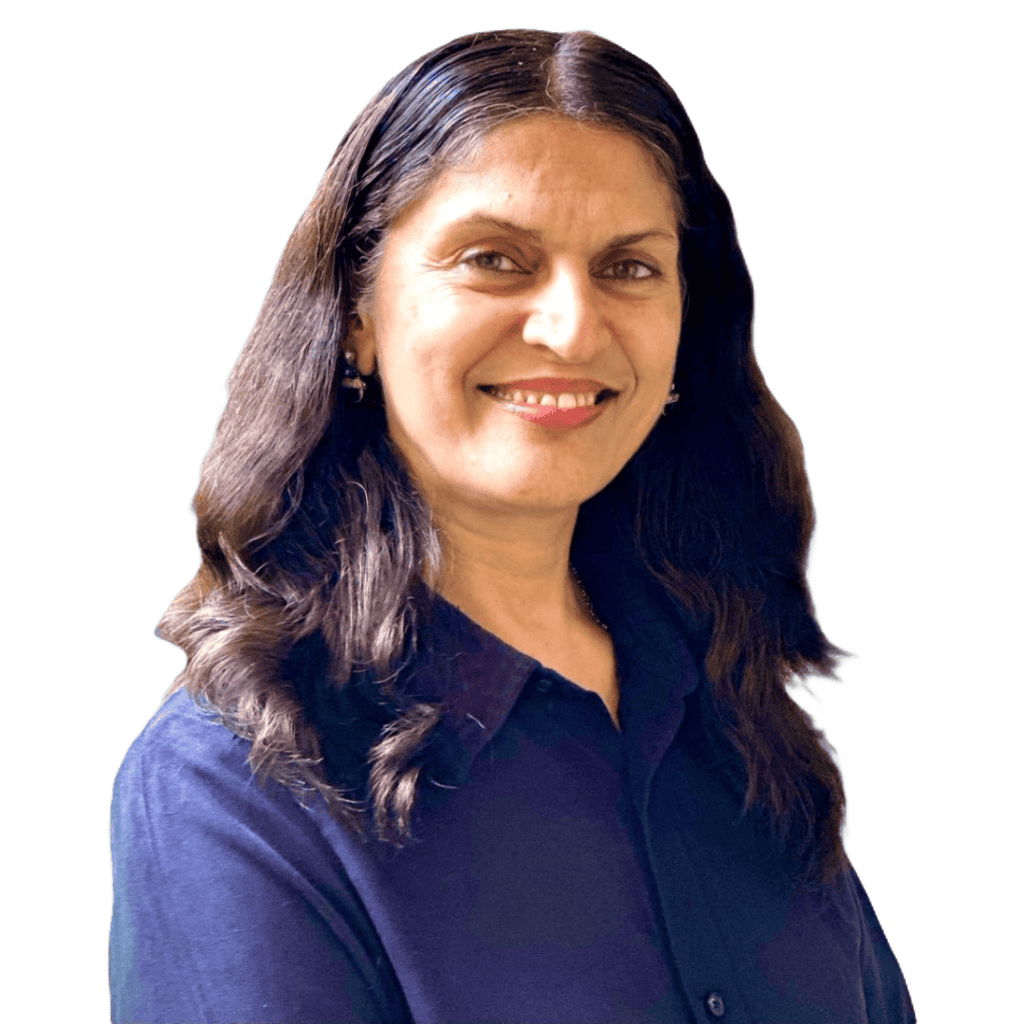
Ritu M. Uberoy has over twenty-five years of experience in the software and information technology industry in the United States and in India. She established Saviance Technologies in India and has been involved in the delivery of several successful software projects and products to clients in various industry segments.
Ritu completed AI for Health Care: Concepts and Applications from the Harvard T.H. Chan School of Public Health and Applied Generative AI for Digital Transformation from MIT Professional Education. She has successfully taught Gen AI concepts in a classroom setting in Houston and in workshop settings to C-Suite leaders in Boston and Cleveland. She attended HIMSS in March 2024 at Orlando and the Imagination in Action AI Summit at MIT in April 2024. She is also responsible for the GenAI Center of Excellence at BigRio and DigiMTM Digital Maturity Model and Assessment at Damo.
Ritu earned her Bachelor’s degree in Computer Science from Delhi Institute of Technology (now NSIT) and a Master’s degree in Computer Science from Santa Clara University in California. She has participated in the Fellow’s program at The Wharton School, University of Pennsylvania.
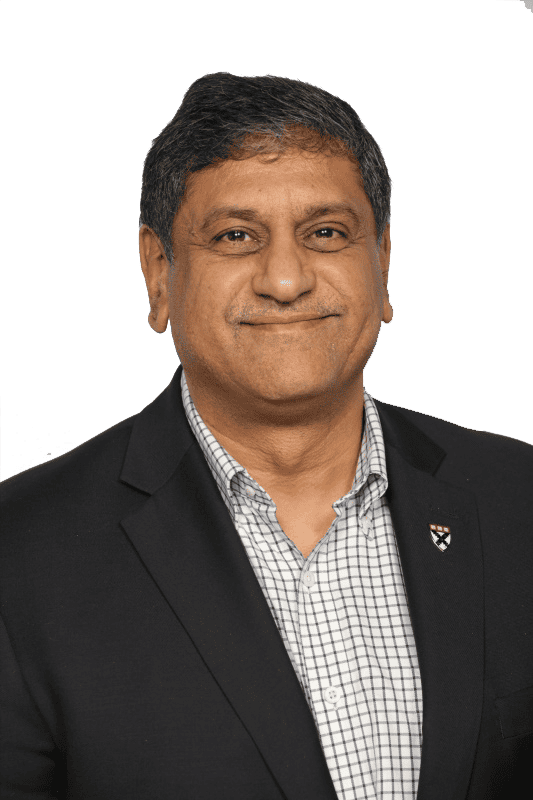
Rohit Mahajan is an entrepreneur and a leader in the information technology and software industry. His focus lies in the field of artificial intelligence and digital transformation. He has also written a book on Quantum Care, A Deep Dive into AI for Health Delivery and Research that has been published and has been trending #1 in several categories on Amazon.
Rohit is skilled in business and IT strategy, M&A, Sales & Marketing and Global Delivery. He holds a bachelor’s degree in Electronics and Communications Engineering, is a Wharton School Fellow and a graduate from the Harvard Business School.
Rohit is the CEO of Damo, Managing Partner and CEO of BigRio, the President at Citadel Discovery, Advisor at CarTwin, Managing Partner at C2R Tech, and Founder at BetterLungs. He has previously also worked with IBM and Wipro. He completed his executive education programs in AI in Business and Healthcare from MIT Sloan, MIT CSAIL and Harvard School of Public Health. He has completed the Global Healthcare Leaders Program from Harvard Medical School.
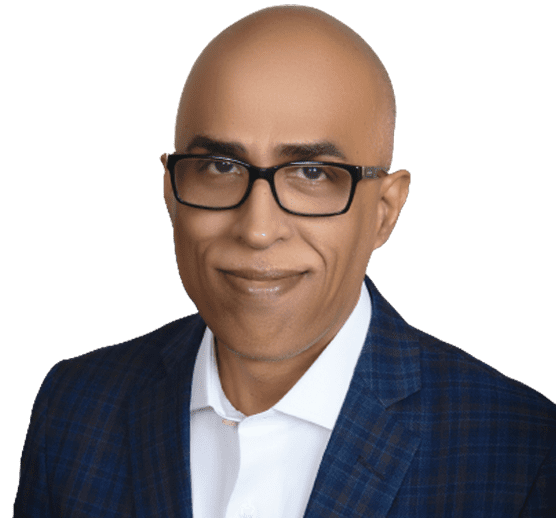
Paddy was the co-author of Healthcare Digital Transformation – How Consumerism, Technology and Pandemic are Accelerating the Future (Taylor & Francis, Aug 2020), along with Edward W. Marx. Paddy was also the author of the best-selling book The Big Unlock – Harnessing Data and Growing Digital Health Businesses in a Value-based Care Era (Archway Publishing, 2017). He was the host of the highly subscribed The Big Unlock podcast on digital transformation in healthcare featuring C-level executives from the healthcare and technology sectors. He was widely published and had a by-lined column in CIO Magazine and other respected industry publications.
Stay informed on the latest in digital health innovation and digital transformation